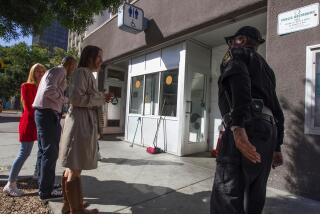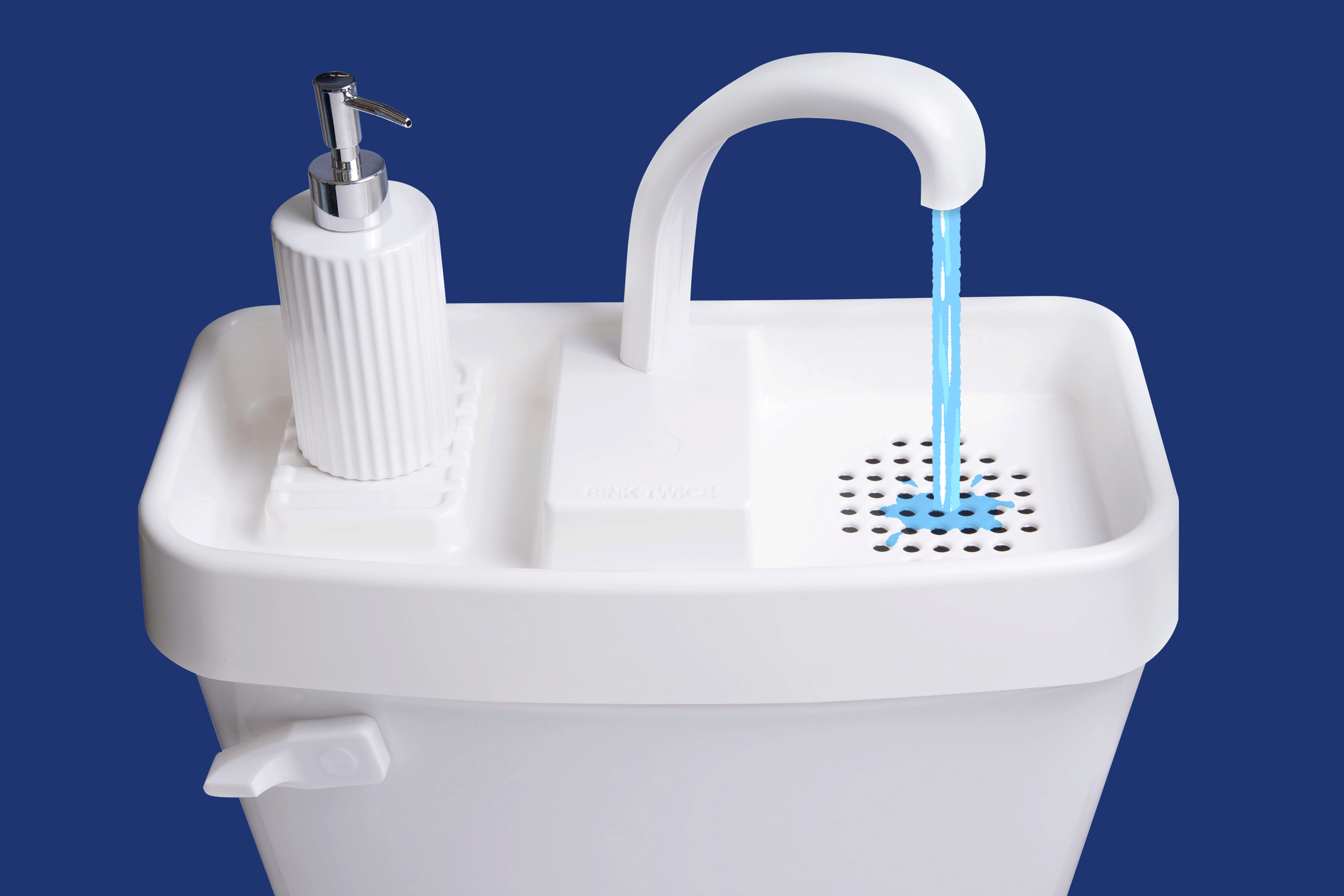Plumbing Firm Wants to Be a Fixture in U.S. : Marketing: Toto Ltd. of Japan hopes its high-tech, water-saving toilets will win over consumers, particularly in drought-stricken California.
- Share via
ORANGE — The bathroom may become the next trade battleground between the United States and Japan.
Toto Ltd., Japan’s largest manufacturer of plumbing and toilet fixtures, is coming to the United States to challenge such household names as American Standard and Kohler Co. for supremacy in America’s bathrooms.
The Japanese company is hoping that its line of high-tech, water-saving toilets will be as popular in this country as they are in Japan, particularly in drought-stricken California. The move comes after California passed legislation requiring toilets installed in new commercial and residential construction after January, 1992, to use a maximum 1.6 gallons per flush. Current state law sets a 3.5-gallon maximum. A similar law is pending in Congress.
Rapid industrialization and a growing population prompted Japan to enact strict water conservation measures a decade ago, including a 2-gallon-per-flush limit on toilets.
Toto is planning an extensive marketing campaign in national trade publications and newspapers and on Japanese-language television programs in Southern California. The company opened its first North American sales office this week in Orange.
In Japan, Toto is known for its unique high-tech toilets. For example, the company markets one toilet seat that includes a small recording device that plays flushing sounds as soon as someone uses the toilet. It also has a computerized “paperless” toilet and an electronic urinal flushing system that uses infrared sensors for water conservation.
Toto is modifying some of its products for the U.S. market, said Masafumi Ota, president of Toto Kiki USA Inc. For example, the company has replaced the buttons used to flush the toilets it sells in Japan with mechanical handles that will be more familiar to consumers here.
American manufacturers of bathroom hardware are paying close attention to Toto’s moves.
“I would rank (Toto) as our No. 1 threat in the future,” said Emmanuel A. Kampouris, American Standard’s chief executive.
Toto, which had worldwide sales of $2.3 billion last year, believes the time is ripe for its entry into the U.S. market. The nation’s growing environmental movement and the passage of water conversation laws should boost the appeal of its products, company officials say.
Toto will concentrate its sales efforts on commercial and residential builders, said Yoshine Koga, Toto Ltd.’s president. The company’s goals are ambitious: sales of $6 billion in North America by 1995.
But some industry observers say Toto may have picked an inopportune time for its entry into the U.S. market. The construction industry--a key to Toto’s success in placing its products in new commercial and housing projects--is suffering its worst slump in years, noted Allison Murray, managing editor of Kitchen & Bath Business magazine in New York.
Nevertheless, Murray said that water conservation and Toto’s innovative products may enable it to gain a toehold in the market and wait out the building slump.
Toto officials, meanwhile, said they are taking a long-term approach to the U.S. market. Within the next six months, the company plans to select a site for its first U.S. manufacturing plant. The company hopes to have the plant in operation within two years.
Some of Toto’s products--gold-plated bathroom fixtures and computerized toilets--are geared toward the high-end market, but it also will market fixtures that will be priced competitively with American-made hardware.
American manufacturers have long dominated the U.S. market for bathroom hardware, which at $12 billion annually is three times the size of Japan’s market, according to the National Kitchen and Bath Assn., a Hackettstown, N.J., trade group.
Toto’s products have been sold through a few distributors in California, Hawaii and Massachusetts, but sales have been negligible. The opening of the regional office marks Toto’s first big push into the U.S. market.
“The West Coast is a fast-growing market for both residential and commercial buildings and since we already established many business contacts among plumbing distributors and commercial building owners in Southern California, we chose to operate from Orange County,” said Ross Beck, Toto Kiki’s marketing manager.
Beck said some other trends in the United States should also work in his company’s favor. For example, the current nursing shortage could provide an opportunity for Toto’s Washlet product, a $750 computerized, bidetlike toilet seat that is also equipped to take one’s blood pressure and analyze urine within minutes.
“The days when bathrooms replace some nursing duties, like taking blood pressures, and paperless toilets are not far away,” said Larry Sato, Toto Kiki’s vice president of operations. He concedes that it may not be easy to persuade Americans to let go of long-held habits and opt for a bidetlike device.
Some of Toto’s high-tech bathroom hardware, such as the paperless toilets, won’t compete directly with U.S. manufacturers who have no similar products. But American Standard and other U.S. firms are concerned that Toto’s line of luxury bathroom fixtures--such as automatic faucets--and standard flush toilets will compete with their products.
More importantly, they note that Toto is a deep-pocketed company capable of waging a long marketing assault in the United States.
More to Read
Inside the business of entertainment
The Wide Shot brings you news, analysis and insights on everything from streaming wars to production — and what it all means for the future.
You may occasionally receive promotional content from the Los Angeles Times.










